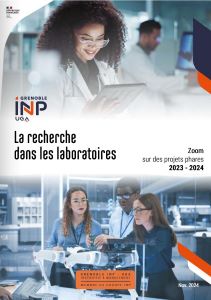Contact
- Vice-présidente Recherche et du Conseil Scientifique
Lorena Anghel - Vice-présidente Innovation et Relations entreprises
Gaëlle Calvary - Directeur de la DRIVE
Cédric Di Tofano Orlando
Tél. 04 76 57 43 16 - Annuaire
A lire aussi
Michael F. Ashby, Royal society research Professor, Université de Cambridge, Grande-Bretagne




